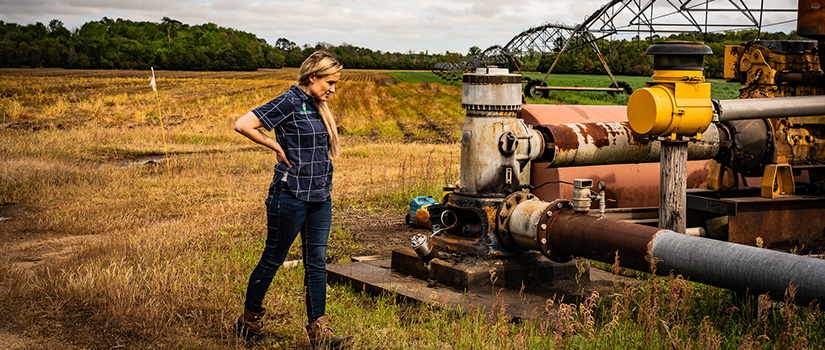Sharp and Sharp Certified Seed, a family-owned farm in Allendale, South Carolina, was established in 1948 by Don Carlos Sharp, Jr., a World War II veteran and agronomy graduate from Clemson University and his wife, Camille Lawton Cunningham. Built on land that had been in Camille’s family since at least 1835, the award-winning farm has weathered challenges, including drought, fire, a hard freeze, and economic downturns.
A Rough Transition to the Second Generation
Family farmers cannot control the weather and are subject to broader market forces, but they can plan for generational transitions. Don and Camille were proactive about the operational aspect of the transition, and their son, Don Carlos Sharp, III, worked alongside his father for many years.
However, Don and Camille had two children, and their daughter, Camille Wilson Sharp, was not involved in farming. This created a classic dilemma for the family: how to balance the desire to treat each child equally with the need to preserve the viability of the business? Ultimately, the Sharps did not resolve the question and the farm was left equally to both children. Yet, there was not enough cash flow to facilitate a buyout. (This is typical of family farms—the value is tied up in the land).
Although it strained their relationship, the siblings reached a compromise that allowed Don to retain the farm while his sister received rental payments from about 500 acres that she still owns. This compromise, although not the optimal solution, ensured the farm's continued operation.
Welcoming the Third Generation
Currently, Sharp and Sharp Certified Seed is in the process of transitioning ownership from Don to his daughter, Rachael Sharp. The family had expected Rachael's brother to take over, but personal issues forced a change in plans. Rachael, who has been working full-time on the farm for five years, handles various responsibilities, from bookkeeping and finances to logistics.
The farm, currently a general partnership, is gradually transferring property and business equity to Rachael via a Farm Services Agency program. The family has retained counsel to guide them through the process. After the close call the family experienced in the second-generation transition, the Sharps have determined to invest the necessary resources to avoid similar pitfalls.
Rachael believes that open and honest conversations have been instrumental. While discussing sensitive issues such as business succession and estate planning can be uncomfortable, problems don’t go away when they are left unaddressed.
Conclusion
Sharp and Sharp Certified Seed illustrates the importance of business succession planning. The Sharps’ dedication to maintaining the family legacy and their willingness to address tough issues openly sets a strong example for other family-owned businesses. The prospects for a third generation of Sharp and Sharp Certified Seed are bright.
